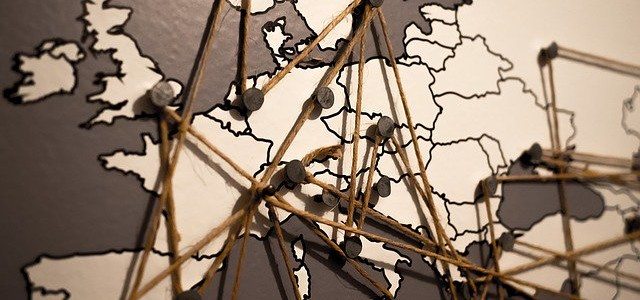Published
Trade Is Here to Stay
By: Natalia Macyra
Subjects: EU Trade Agreements WTO and Globalisation

In a time of rising protectionism and emerging trade wars, it is crucial that supporters of free trade raise their voices. We need to create a new narrative that addresses concerns and makes our case for free trade loud and clear.
Trade is a mutually beneficial and voluntary exchange of goods and services between two parties. For centuries trade has been an instrumental part of a state’s economic policy often helping to exercise its soft power. Since the 1950s, trade has also been an inseparable element of the global post-war recovery and development. For decades, it has played the role of a superhero contributing to job creation, innovation and economic growth.
However, the increase of international trade has also brought some unprompted changes. Baby Boomers and Millennials have seen and experienced more transformations in their every-day life than any other generation before. Many companies have moved to a global production process, which endangered local jobs. Most countries’ GDP is based on intangible services rather than traditionally manufactured goods or agricultural products. Digitalisation is now an inseparable aspect of our life that comes with new threats. All these changes in work arrangements, power structures or even natural environment have generated resistance and fuelled the anti-globalisation protests.
Another consequence of decades of multilateral trade liberalisation is smaller monetary benefits from each new preferential trade agreement. To continue reaping substantive benefits from trade liberalisation, recent trade negotiations have focused on the reduction of internal barriers rather than external tariffs. As a result, trade negotiations today seem more complex and distressing. Meanwhile, anti-free trade groups add to the increasing anxieties and use their scaremongering tactics to exploit people’s insecurities. Subsequently, anti-free trade attitudes are growing.
Nowadays trade is often associated with inequality, reduced environmental, health or labour standards and cheap labour. What started in Seattle in 1999 continues today, sometimes with more force and resources than ever before. Many people in developed countries feel that trade has become a vigilante and that members of political elites take actions without explicit legitimisation and with limited accountability. At the same time, most politicians now openly admit that there are also negative side effects of trade and are willing to let more people in on the secret trade negotiations, something unimaginable a few years ago.
Nonetheless, trade is here to stay. Regardless of the number of signed agreements, there is little that can stop people from trading. Consider, for instance, the communist countries during the Cold War. People kept trading despite the centrally planned economy, and the truly voluntary exchange was moved underground. It is in our human nature to move forward, explore new opportunities and test boundaries, and free trade together with supportive measures can help people with these motivations.
Addressing people’s apathy, indifference and lack of time could help improve their currently limited political partaking. Abandoning onerous procedures and ensuring that people have a chance to understand the matter at hand is likely to affect their interest, involvement and support. Therefore, when discussing trade and economic policies, we need to appeal to both: individual interests and impact for the overall economy. Both these aspects are interlinked and the sooner we acknowledged it, the better.
At the same time, policy-makers should focus their efforts on restoring trust. Acknowledging negative side effects of trade is the first step. Starting an honest discussion with all groups involved – workers, youth, politicians, and vulnerable members of the society – would not only help to rewrite a social contract but also generate more ideas to find better solutions. We cannot forget that trade was, is and will continue to be an essential part of both the economy as a whole as well as of every individual household. Yet, if we cannot convince the public that our actions are legitimate, we will not convince our partners either. It is up to us to ensure that we do not let free trade become the villain.
In this series of blog posts, we would like to present initiatives and practices aiming at promoting free trade within society.